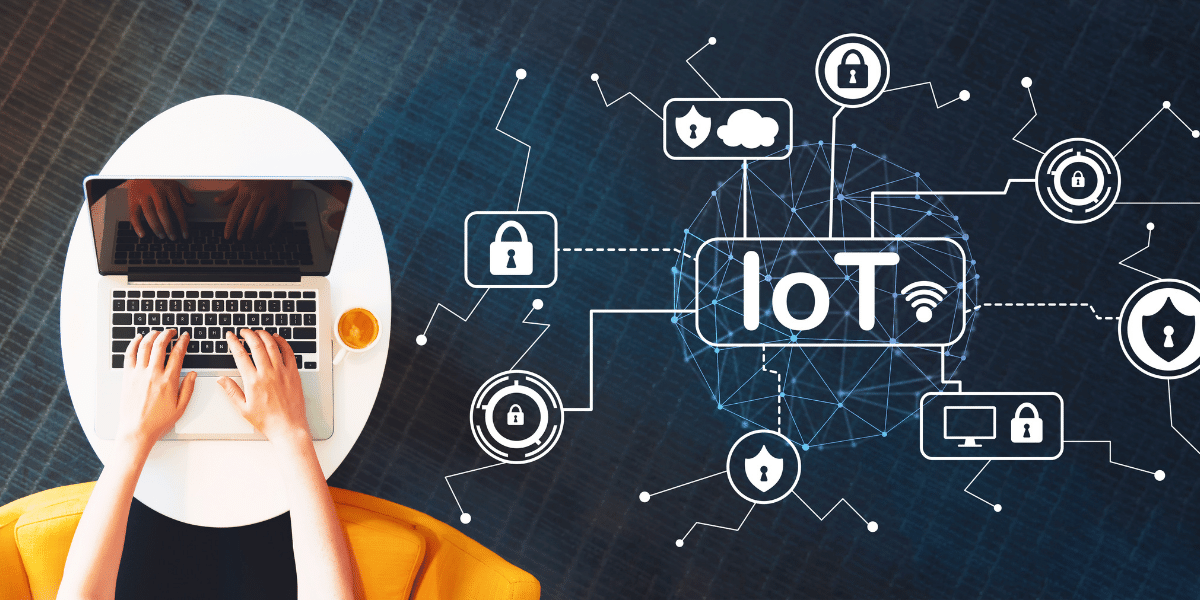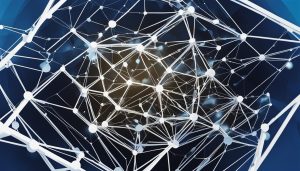The Internet of Things (IoT) is revolutionizing the way we live and work. It refers to the network of physical objects, or “things,” embedded with sensors, software, and other technologies that enable them to connect and exchange data with other devices and systems over the internet. From everyday household objects to sophisticated industrial tools, IoT has become one of the most important technologies of the 21st century.

The Importance of IoT
The seamless communication between people, processes, and things facilitated by IoT has transformed various industries. With over 7 billion connected IoT devices today, experts predict this number will grow to 10 billion by 2020 and 22 billion by 2025. The ability to connect objects to the internet allows for data sharing and collection with minimal human intervention. This hyperconnected world enables digital systems to record, monitor, and adjust interactions between connected things, bridging the physical and digital realms.
Technologies Enabling IoT
Several recent advances in technology have made IoT practical and accessible. These include:
- Low-cost, low-power sensors: Affordable and reliable sensors have made IoT technology feasible for more manufacturers. These sensors enable the collection of data from the physical world.
- Connectivity: The availability of various network protocols has made it easy to connect sensors to the cloud and other devices, facilitating efficient data transfer.
- Cloud computing platforms: The rise of cloud platforms allows businesses and consumers to access the necessary infrastructure without the burden of managing it. This scalability is crucial for IoT applications.
- Machine learning and analytics: Advances in machine learning and analytics, combined with vast amounts of data stored in the cloud, enable businesses to gather insights faster and more easily. These technologies push the boundaries of IoT and enhance the value of the data it produces.
- Conversational artificial intelligence (AI): Neural networks have brought natural-language processing (NLP) to IoT devices, making digital personal assistants like Alexa, Cortana, and Siri appealing, affordable, and viable for home use.
Industrial IoT (IIoT): Transforming Industries
Industrial IoT (IIoT) refers to the application of IoT technology in industrial settings, particularly in instrumentation and control of sensors and devices that engage cloud technologies. IIoT is often referred to as the fourth wave of the industrial revolution, or Industry 4.0. It enables wireless automation and control through machine-to-machine communication (M2M), cloud technologies, analytics, and machine learning. IIoT opens the door to new automation layers, revenue streams, and business models. Some common uses for IIoT include:
- Smart manufacturing: IIoT enables machine monitoring and product-quality monitoring, ensuring that machines and products perform within required tolerances.
- Connected assets and preventive maintenance: IIoT allows for the tracking and protection of high-value assets, as well as the ability to monitor their health remotely and trigger preventive maintenance
- Smart power grids: IIoT applications optimize the management of power grids, improving efficiency and reliability.
- Smart cities: IIoT enhances the management of urban infrastructure, including transportation, energy, and public services.
- Connected logistics: IIoT enables real-time fleet monitoring, optimizing logistics and improving efficiency.
- Smart digital supply chains: IIoT applications improve visibility and efficiency throughout the supply chain.
Unlocking Business Value with IoT
As IoT becomes more widespread, companies are capitalizing on its potential business value. Some of the key benefits include:
- Data-driven insights: IoT data provides valuable insights that help businesses better manage their operations and make informed decisions.
- Increased productivity and efficiency: IoT applications streamline processes and improve operational efficiency, resulting in increased productivity.
- New business models and revenue streams: IoT opens up opportunities for businesses to create innovative business models and explore new revenue streams.
- Seamless connection between physical and digital worlds: IoT bridges the physical and digital realms, enabling businesses to connect their physical operations to digital systems for quick time-to-value.
IoT Applications: From Manufacturing to Healthcare
IoT applications span a wide range of industries, bringing significant benefits to various sectors. Some of the most popular IoT applications include:
- Manufacturing: IoT enables machine monitoring and product-quality monitoring, ensuring optimal performance and reducing downtime. It also allows for proactive maintenance based on real-time sensor data.
- Automotive: Connected cars leverage IoT technology to provide remote operation, maintenance, and even autonomous driving capabilities. This revolutionizes the traditional car ownership model and opens up new possibilities for manufacturers and dealers.
- Transportation and Logistics: IoT applications optimize transportation and logistical systems by providing real-time data on vehicle availability, weather conditions, and inventory management. This improves efficiency and enables better decision-making.
- Retail: IoT applications help retailers manage inventory, enhance customer experience, and optimize supply chains. Smart shelves and beacons are examples of IoT technologies used to monitor inventory and deliver targeted offers to customers.
- Public Sector: IoT applications benefit the public sector by enabling utilities to notify users of outages and disruptions in services. IoT-based solutions improve the efficiency and reliability of public services.
- Healthcare: IoT asset monitoring enhances healthcare operations by providing real-time tracking of assets such as wheelchairs and medical equipment. It also enables remote patient monitoring, improving patient care and safety.
- General Safety Across All Industries: IoT applications play a crucial role in improving worker safety in hazardous environments by providing real-time alerts and monitoring systems. Wearables can also monitor human health and environmental conditions.
IoT: Changing the World Through Connected Cars
One of the most exciting applications of IoT is in the automotive industry, where connected cars are transforming the way we think about transportation. IoT enables car owners to remotely operate their vehicles, preheating them before entering or summoning them with their phones. This technology also allows car manufacturers and dealers to establish continuous relationships with customers by offering transportation-as-a-service using autonomous cars. Connected cars can continuously receive software upgrades, enhancing their performance and value over time.
Oracle IoT: Making Informed Business Decisions
Oracle offers Intelligent Applications that extend supply chain, ERP, HR, and customer experience applications to the digital world. Leveraging intelligent algorithms and digital twins, Oracle’s IoT solutions improve operational efficiency, worker productivity, customer experience, and create new business models and opportunities. With Oracle IoT, businesses can make data-driven decisions, optimize their operations, and unlock the full potential of IoT technology.
In conclusion, the Internet of Things is revolutionizing industries by connecting physical objects to the digital world. With advances in technology, IoT applications are transforming manufacturing, automotive, transportation, retail, healthcare, and the public sector. Businesses are leveraging IoT to gain data-driven insights, increase productivity, and explore new revenue streams. Connected cars are reshaping the automotive industry, while Oracle provides IoT solutions to help businesses make informed decisions and unlock the full potential of IoT technology. As IoT continues to evolve, its impact on industries and everyday life will only grow stronger.




No comments! Be the first commenter?